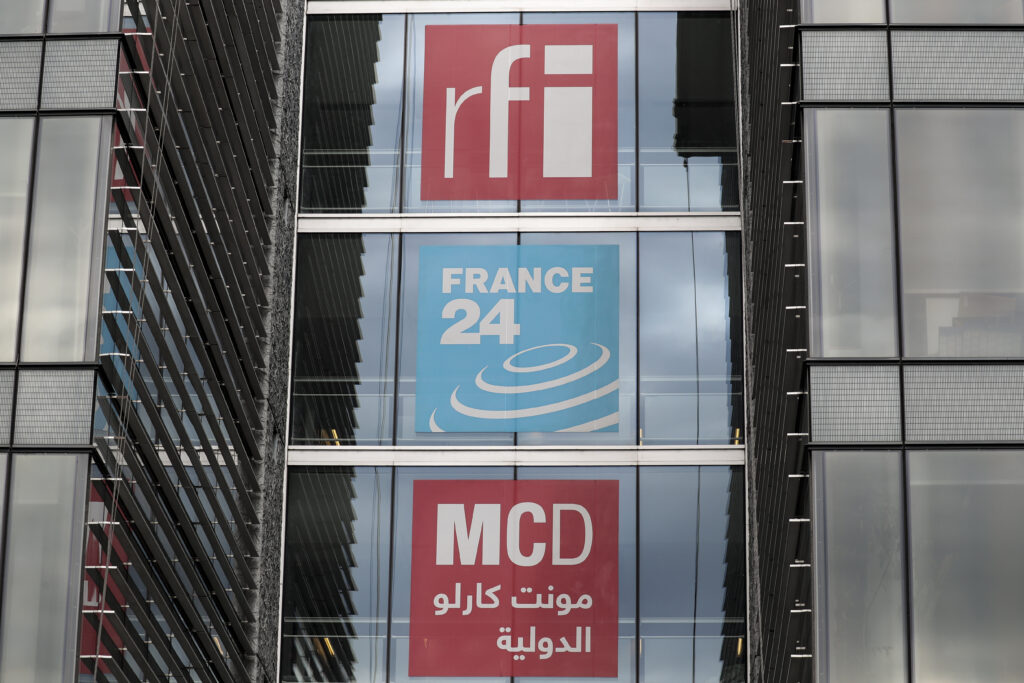Togo suspended French broadcasters RFI and France 24 for three months, the country’s media regulator said Monday, accusing both of transmitting “inexact and tendentious” content.The temporary ban further reduces the two French public broadcasters’ availability in West Africa after they were slapped with multi-year suspensions in Mali, Burkina Faso, and Niger, a trio of Sahelian countries currently run by military juntas.”Several recent broadcasts relayed inaccurate, biased, and even factually incorrect statements, undermining the stability of republican institutions and the country’s image,” Togo’s High Authority for Audiovisual and Communications (HAAC) said in a statement.In a joint statement, the two broadcasters declared they had “learned with surprise” of their ban which had been delivered “without warning” despite what they termed a “sustained and constructive dialogue” with the regulator.RFI and France 24 also reaffirmed their “indefatigable commitment to deontological journalistic principles, along with support for their teams who daily deliver rigorous, independent, verified, impartial and balanced news” broadcasts.In a statement which AFP has seen, HAAC cited three reports by the French broadcasters to justify its decision.The first was an interview on France 24 in which “inaccurate statements were made regarding the alleged conditions under which the artist Aamron was apprehended.”The second featured “public statements by the regional correspondent of France 24 calling for mobilisation against republican institutions”, while the third alluded to “biased” remarks in an RFI commentary.The suspension comes after anti-government protests shook the capital last week, Lome.Dozens of people were arrested after police dispersed protesters with tear gas on the night of June 5 to 6 in several districts, including near the presidential palace.Some journalists who covered the protests were also briefly detained and ordered by police to erase their footage.The government said it has since released more than 50 people but several remain in police custody. The protests, notably called for by popular rapper Aamron, were spurred by rising electricity prices and constitutional changes enacted by the government of President Faure Gnassingbe, who took power in 2005 upon the death of his father, who had ruled for nearly four decades.Those changes strengthened his grip over the country with the opposition saying they remove limits on his stay in office, extending his potential time as president until 2031 before likely being appointed to a new position of “president of the council of ministers” — essentially prime minister.Gnassingbe says the reforms will strengthen national unity.Aamron — real name Essowe Tchalla — was arrested on May 26 but then appeared in a video 10 days later in which he apologised to the president and said he was in a psychiatric hospital suffering from “severe depression”.Togolese opposition parties and civil society groups last Thursday demanded Gnassingbe step down.The National Alliance for Change (ANC), Democratic Forces for the Republic (FDR) and civil society groups urged citizens to engage in civil disobedience from June 23 to thwart the “illegitimate” regime.Protests have been banned in Togo since 2022, though public meetings are still allowed.There have been fresh calls this week for further protests on June 26, 27 and 28.Togo currently places 121st out of 180 countries in Reporters Without Borders’ (RSF) rankings on freedom of the press — a drop of eight places from the previous year.ek-pid/cw/
